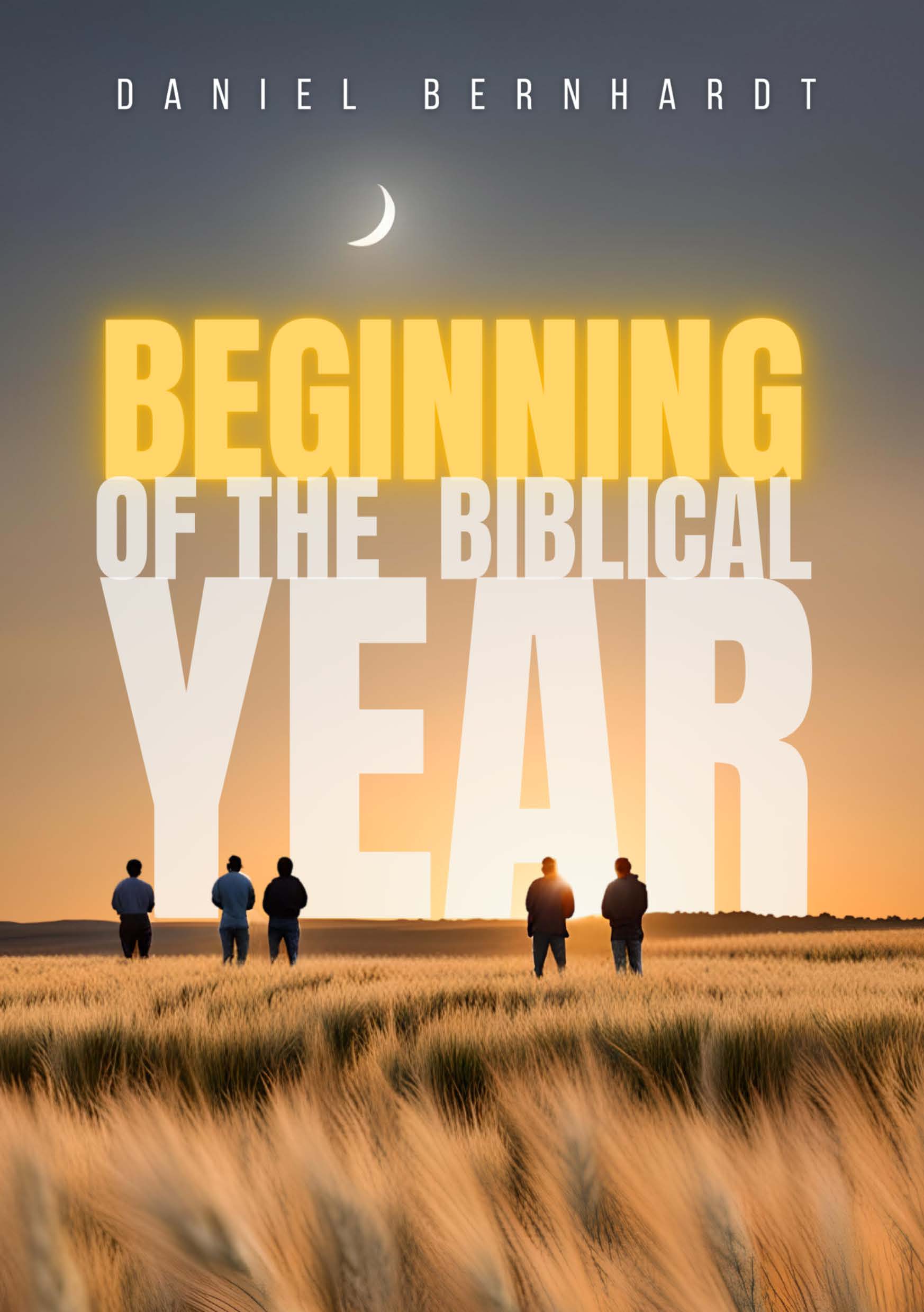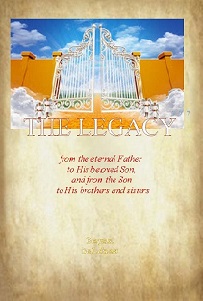21. What Type of Measuring Rod is that in your Hand?
A. Credentials for Worship
When Jesus was here on earth, He made some very bold claims regarding Himself. One of these amazing statements occurs in John 5:18-27.
Joh 5:18-27 Therefore the Jews sought all the more to kill Him, because He not only broke the Sabbath, but also said that God was His Father, making Himself equal with God. (19) Then Jesus answered and said to them, "Most assuredly, I say to you, the Son can do nothing of Himself, but what He sees the Father do; for whatever He does, the Son also does in like manner. (20) For the Father loves the Son, and shows Him all things that He Himself does; and He will show Him greater works than these, that you may marvel. (21) For as the Father raises the dead and gives life to them, even so the Son gives life to whom He will. (22) For the Father judges no one, but has committed all judgment to the Son, (23) that all should honor the Son just as they honor the Father. He who does not honor the Son does not honor the Father who sent Him. (24) "Most assuredly, I say to you, he who hears My word and believes in Him who sent Me has everlasting life, and shall not come into judgment, but has passed from death into life. (25) Most assuredly, I say to you, the hour is coming, and now is, when the dead will hear the voice of the Son of God; and those who hear will live. (26) For as the Father has life in Himself, so He has granted the Son to have life in Himself, (27) and has given Him authority to execute judgment also, because He is the Son of Man.
Jesus claims that God is His Father and therefore equal with God. He also claims that all judgment has been given to Him, meaning that He is the judge of the whole world. He also makes the important claim that all should honour the Son just as they honour the Father. Jesus claims that He is entitled to our worship.
If someone came to you and said I am worthy of your worship, I guess the polite thing we would ask is, “What is your claim to worship?” “Upon what basis are you asking me to worship you?” “What are your credentials?” It would be natural for us to pull out our measuring rod and begin to size up this person who is making such a bold claim and see if they qualify. The question is what type of measuring rod are you going to use?
When the Father introduces Jesus to the world, He tells us why we should listen to Him? And in the explanation of the Father is the key to which measuring rod we should use. Notice:
Mat 17:5 While he was still speaking, behold, a bright cloud overshadowed them; and suddenly a voice came out of the cloud, saying, "This is My beloved Son, in whom I am well pleased. Hear Him!"
Notice carefully what the Father says. What is the reason why we should listen to Jesus, His teachings and claims? God gives one simple reason: This is my Son whom I love (or am well pleased with). The measuring tool therefore must be a relational one. It must be based upon the type of relationship that Jesus has with the Father.
The Father did not say, “This is the all powerful creator of the universe” as the basis of why we should listen to Jesus, even though Jesus was indeed all of this.[1] The Father points us to the relationship that the Son has with Himself as the reason why we should listen to Him and follow Him.
B. Regarding Christ From a Worldly Point of View
But are we willing to listen to Jesus and follow Him based on His relation to the Father or do we naturally pick up another measuring rod to measure Jesus: a measuring rod that we were born with; a measuring rod by which all men measure true greatness; a measuring rod that is based on power, position and performance. Does the lie of the serpent naturally guide our hands to the wrong measuring rod to determine whether Jesus is worthy of worship? When we say measure, we are meaning our searching of the Scriptures. Is it possible to try and measure Christ in a worldly or carnal way, meaning employing a measuring rod that God has not asked us to use? Notice what Paul says in 2 Cor 5:16
2Co 5:16 So from now on we regard no-one from a worldly point of view. Though we once regarded Christ in this way, we do so no longer. (NIV)
Paul states that he once regarded (or known NKJV) Christ from a worldly point of view. The key point is that if we use the wrong measuring rod on Christ through the Scripture then we might demand the wrong things of Him.
Over and over again we read scholars in their efforts to present Christ, the words “full deity” and “Christ is God in the fullest sense” and that anything less than “total equality” is a depreciation of the deity of Christ. What kind of measuring rod is being used in these cases? Why is Christ continually subjected to this process of proving His inherent Divinity? A process that is really responding to the question – do you measure up to our standard? Is this the measuring rod the Father asks us to use? Are we sure that when we come to examine Christ that we do it in a way that the Father asks us to? As we noticed in the previous chapter that if we make Christ equal to the Father in the way the world always does – by inherent power then we could actually deny the real Christ by using a faulty measuring rod.
C. Relational Versus Performance Based Measurement
Let us compare the measuring rods of relationship and performance:
|
Relational Based Measurement |
Performance Based Measurement[2] |
|
Word of the Father concerning Christ |
Length of Existence |
|
Knowledge of the Father’s Character |
Source of power |
|
Knowledge of living with the Father |
Amount of power |
|
Inheritance from the Father |
Position to the Father |
If we use a performance-based measurement system then we will refer to all the texts in the Bible that talk of Christ’s power and abilities as the basis of why Jesus is worthy of worship. But the Father does not introduce any of these things as a reason or basis to listen to Him. Certainly, Christ’s power and inherent attributes tell us what Jesus is like, but all these things are immediately understood when we say that Christ has by inheritance obtained a more excellent name than the angels.
If we say that believing Christ is begotten actually denigrates the Divinity of Christ, then we are inadvertently suggesting that the inheritance which the Father gave was not sufficient. The inheritance and commands of the Father are actually not enough to settle the question of Christ’s Divinity. Could we be saying in effect, “You might tell us that He is equal, but we are going to prove it for ourselves to make sure.” Obviously once we are convinced that Christ is God, we will seek to ensure that his inherent powers and abilities are of the highest order. At this point we are faced with the danger of trying to prove too much and focusing on things that are not essential.
If we take a relational measuring rod, then issues of existence and power source are secondary to issues of the relationship of the Son to the Father. In essence we worship the Son because the Father tells us to. We honour the Son because the Father tells us to. We believe He is Divine because He is the express image of His Father. Is this not enough? Is the Father’s Word and bestowed inheritance not enough for us to worship Jesus? Obviously it wasn’t for Lucifer. He demanded more than simply the Father’s word; he wanted hard core performance-based evidence.
If we understand that the flow of the Father’s blessing opens to us in submission or obedience to His Word, can it be that in not accepting the only-begotten Son of God as equal with the Father based on His Word alone, that we are preventing His complete blessing from being released. Could the Father’s ability to pour out greater measures of His Spirit be directly linked to the manner in which we consider His Son?
D. Enslaved to Performance-based Measurement
Our church has unwittingly become obsessed with performance-based measurement of Christ as a basis of considering Him fully Divine. Is this not evidence of our Laodicean condition? That is why there are two key passages in the Spirit of Prophecy that are always quoted as a basis to accept the full Deity of Christ. They are:
- In Christ was life original, unborrowed and underived. DA 530 (Power source)
- There never was a time when Christ was not in fellowship with the Father. Ev 615 (Length of existence)
Because the performance-based measuring rod is never questioned, if anyone suggests that Christ was begotten of the Father in eternity, this automatically means that the person is saying “there was a time when Christ did not exist.” The conclusion is drawn directly from the measuring rod used. The Father has never told us to use this measuring rod on His Son and so the conclusion is irrelevant. Those who are enslaved to performance-based measurement can’t allow Christ to be begotten because this would cause Christ not to measure up to their standard.
Notice the Performance based logic in the following statement.
“If
Christ is fully God and the Holy Spirit is fully God,
then
the Godhead must be a trinity.”
(J. R. Spangler, Review and Herald, October 21st 1971, I believe in the triune God)
The logic process is clear. The only way the above statement can form a concept of equality is through means of a Trinity. The nature of equality is assumed automatically to be power and performance based.
The need for this logic process did not seem apparent to W.W Prescott when he stated:
“The Son is equal to the Father in everything except that which is conveyed by the terms Father and Son. He is equal to the Father in that he shares to the full the Father’s existence from eternity and his infinite power and wisdom and love. But inasmuch as the Father possesses these divine attributes from himself alone, whereas the Son possesses them as derived from the Father, in this real sense and in this sense only, the Father is greater than the Son.
“Evidently in an eternal Father and an Eternal Son the ideas of older and younger can have no place. As we lift up the conception of sonship out of time into eternity, these elements of it, ever present in human fathers and sons, at once disappear.” The Doctrine of Christ, Page 20 (1920).
Just as the disciples believed that the question of “Who is the greatest in the kingdom of heaven” was critical, so we as Adventists have mistakenly believed that answering the question of the “age” of the Son is vital. Notice what Ellen White says:
“Here Christ shows them that, although they might reckon His life to be less than fifty years, yet His Divine life could not be reckoned by human computation. The existence of Christ before His incarnation is not measured by figures.” {E. G. White, Signs of the Times, May 3, 1899 par. 4}
Human computation is taking the measurement of time and placing it against Christ to see whether He is eternal by our understanding. This is a human computation and not one that God has asked us to do.
Again notice what Ellen White says:
“…although we may try to reason in regard to our Creator, how long He has had existence, where evil first entered into our world, and all these things, we may reason about them until we fall down faint and exhausted with the research when there is yet an infinity beyond.” {E. G. White, S.D.A. Bible Commentary Vol. 7, p. 919}
Those who are eager to use a performance-based measuring system will seek to use this statement to prove Christ’s eternity, but the point is that it is useless to make any attempt to work out the length of His existence either way, whether begotten or unbegotten. But this is exactly what we must do in trying to use time measurement as a basis of Christ’s Divinity. Such attempts are a clear indication that, like Israel of old, we are held fast by Babylon in slavery.
At times Ellen White felt frustrated that things she had said were taken and expressed in totally the opposite meaning from what she intended. Could this be true concerning some of the statements she penned concerning Christ. Notice:
“It seems impossible for me to be understood by those who have had the light but have not walked in it. What I might say in private conversations would be so repeated as to make it mean exactly opposite to what it would have meant had the hearers been sanctified in mind and spirit. I am afraid to speak even to my friends; for afterwards I hear, Sister White said this, or Sister White said that. My words are so wrested and misinterpreted that I am coming to the conclusion that the Lord desires me to keep out of large assemblies and refuse private interviews. What I say is reported in such a perverted light that it is new and strange to me. It is mixed with words spoken by men to sustain their own theories.”--Letter 139, 1900. 3SM 82
Is it possible that the same has occurred today? This argument obviously works both ways, but I raise it so that all of us might consider carefully, “Am I reading this as it was intended?”
E. Excluding Alternate Measurement from Orthodoxy
The Catholic deacon Arius stated that “there was a time when Christ was not”. He stated it because he was just as obsessed with performance-based measurement as were the Trinitarians. The conclusion is important to those who refuse to simply accept the Word of the Father concerning His Son but it is irrelevant to those who simply trust the Father’s Word.
For Adventists to call people Arian because they believe the simple words of Scripture that Jesus is the only-begotten of the Father, is to force their own measuring system onto those they label by a standard that is not necessarily believed by the accused.
The other amazing thing about calling people Arian and Semi-Arian is that these terms drive the Godhead issue back to the issues the Catholic church were wrestling with in the fourth century. Let me state categorically that I do not acknowledge the issues and reasoning of the debate of the Catholic Church in the fourth century, it was not based on Scripture alone, it was using a performance-based measuring system and therefore the term Arian belongs to that system but not to those who use a different measuring rod. It is also premature and misguided to assign the label of Arian or Semi-Arian to our forefathers. These terms are completely irrelevant to a proper Biblical discussion of the Godhead and are terms derived from an obsession with performance measurement. Brethren let Babylon fall and come into the light!
I choose to obey the Father and use His measuring rod. Christ is equal with the Father because the Father says so. He is equal in that He knows the mind of the Father as no one else does. He knows the Father as the Father knows the Son. This is what is important in the Kingdom of God. Equality is in the relational not in the inherent power.
I appeal to you in the words of Christ “How do you read?” (Luke 10:26) Do you read or measure with a performance-based or relational measuring rod. The measuring rod you use determines the kingdom that rules you.
[1] Notice the relational basis of worship found in the following passage by EGW. “It is not the manifestation of His great and awful majesty and unparalleled power that will leave us without excuse if we refuse Him our love and obedience. It is the love, the compassion, the patience, the long-suffering that He has shown which will witness against those who do not offer Him the willing service of their lives.” SD 19.
[2] See Nov 1964 Ministry article Page 7 on the Trinity for example “The second fact is that all the Persons are coeternal. That is, all of them have always existed, and the Father cannot be said to have been in existence before the Son or the Spirit. All are timeless (see Col. 1:17; John 1:1, Rev. 22:13; compare Isa. 41:4). All three Persons are coequal. That is, they all have equal rank and dignity”



